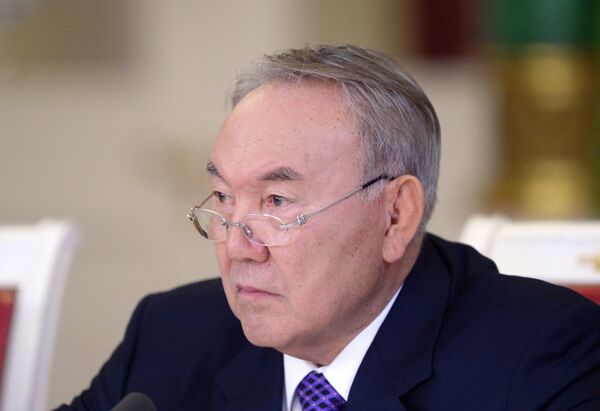MOSCOW, February 21 (RIA Novosti) – The president of Kazakhstan sought to dismiss concerns Friday that any of the country’s lenders was in danger of going bankrupt as unease persists in the wake of a decision to sharply devalue the national currency.
President Nursultan Nazarbayev said in a government meeting on the state of the financial sector that the oil-rich country’s economy was in good health and that no bank would fold.
“We didn’t allow this in 2009 … and we won’t allow it now,” Nazarbayev said, according to a transcript of his speech posted on the presidential administration website.
Banks in Kazakhstan were particularly badly hit by the global financial crisis of 2008 and major state interventions were required to save leading financial groups from collapse.
On Thursday, mid-sized lender Kaspi bank said 10 percent of its deposits had been withdrawn following rumors spread by mobile text message earlier in the week that it and two other national banks were in danger of collapse.
Kaspi said it expected clients to redeposit their money in a few months, once they saw the bank was stable.
Kazakhstan’s central bank joined the attempt to calm savers Tuesday by dismissing the rumors that Kaspi, Alliance and Center Credit were facing looming bankruptcy.
The central bank said the rumors were “false, speculative and misleading” and designed to destabilize the country’s banking system.
The banks also issued a joint statement to reassure clients.
Kazakhstan devalued its national currency, the tenge, by 18.9 percent on February 11, saying it was doing so to prevent economic instability.
The devaluation of the tenge followed the weakening of the Russian ruble, which this week reached yet another record low against the dollar since March 2009.
Currencies in a number of developing economies, including Russia, Turkey, Argentina and India, have seen a substantial drop in value this year amid fears of slowing growth and as an effect of US monetary policy to restrict the volume of dollars in circulation.




